Get Your Sleep!
November 5, 2021
 Over two-thirds of high school students get less than 7 hours of sleep a night, made more concerning by the American Academy of Sleep Medicine’s recommendation for students to get at least 8 hours of sleep every night. This is an alarming disparity, especially considering that, at this age, teenagers are at a time in their lives when learning is paramount. They are gaining information needed to thrive after High School whether it be at college or in the workforce. Sleep and a lack thereof has a direct relationship to memory, therefore impacting a student’s ability to learn. With this, teenagers should get at least 8 hours of sleep per night in order to better perform in school and other aspects of their lives.
Over two-thirds of high school students get less than 7 hours of sleep a night, made more concerning by the American Academy of Sleep Medicine’s recommendation for students to get at least 8 hours of sleep every night. This is an alarming disparity, especially considering that, at this age, teenagers are at a time in their lives when learning is paramount. They are gaining information needed to thrive after High School whether it be at college or in the workforce. Sleep and a lack thereof has a direct relationship to memory, therefore impacting a student’s ability to learn. With this, teenagers should get at least 8 hours of sleep per night in order to better perform in school and other aspects of their lives.
There is a significant amount of research suggesting that teenagers are not getting the sleep they deserve. The Better Health Channel, an organization committed to providing people with the information they need to live a healthier life, have found that while teenagers need 8-10 hours of sleep, most adolescents only get 6.5-7.5 hours of sleep per night. This is a concerning fact, especially considering that the CDC found in 2015 that 73% of high school students are not getting enough sleep. With these two pieces of information in mind, many teenagers should ask themselves if they are getting enough sleep, because chances are that they are not.
A lack of sleep can has a direct link on a student’s ability to learn. Pamela D. Pike, a professor at Louisiana State University, claims that, “In addition to putting us at risk for medical problems and automobile accidents, lack of sufficient sleep impacts goal setting, cognition, and learning.” This is incredibly important for teenagers to keep in mind, as they are at a critical point in their lives. Only years or even months before they are going to be adults, many teenagers have to look to the future and make critical decisions that will affect them for the rest of their lives. Sleep is an important factor that needs to be taken into consideration, as a lack of sleep will directly negatively affect one’s ability to make said decisions.
Another aspect of a lack of sleep that directly links it to worse performance in school is its relationship to learning. Robert Stickgold, a professor of psychiatry at Harvard University, has spent the majority of his career researching the impact of sleep on learning. “It’s as if when you sleep, your brain is figuring out what it’s about. It’s holding on to that information, and it’s throwing out all the rest.” This is incredibly important for students to keep in mind as they go to bed. Was there a big lesson today on world war 1 in history class? Well, when you go to bed, your brain works through all of the nitty-gritty details and instead extracts the main ideas of the lesson, while throwing out all of the less important information. The process of transforming new information, called encoding, then changing it into long-term memory is known as consolidation.
Jessica Payne, a professor of psychology at the University of Notre Dame, describes the process of consolidation here: “After new information is encoded into memory, it continues to be processed and transformed by a process known as consolidation. Sometimes the information is solidified in memory in veridical form, but other times it is changed in ways that make it more useful, flexible and adaptive.” This process is important for students too, as maybe in science class that day you learned from a written out lesson, but tomorrow you would have to use that information in a lab. The consolidation process, which would have helped to manifest that information learned previously, would certainly help students in better completing a lab the next day, once again showing the importance of a good night’s rest.
So what can be done to curb all of the harmful effects of sleep? Well, there are several different strategies that can help provide a better night’s rest. A study done by a Chinese university found that teenagers who put down their devices just an hour before bed sleep about 21 minutes longer per night on average (1hr 45min per week). Another thing that can help greatly is getting exposure to natural light, as it helps to normalize the regular production of melatonin, the chemical that helps you fall asleep. A third thing that can really help is creating a calming routine before bed every night can also help prime your body for a restful night’s sleep. This could include reading, meditating, or even taking a warm bath or shower right before bed.
In all, sleep is an important part of life and even more important for students. Sleep should be taken seriously, as it can improve performance in and out of the classroom, mental well being, and even help to strengthen personal relationships. Remember to get 8-10 hours of sleep per night and also try to utilize some or all of the strategies provided in this article.







































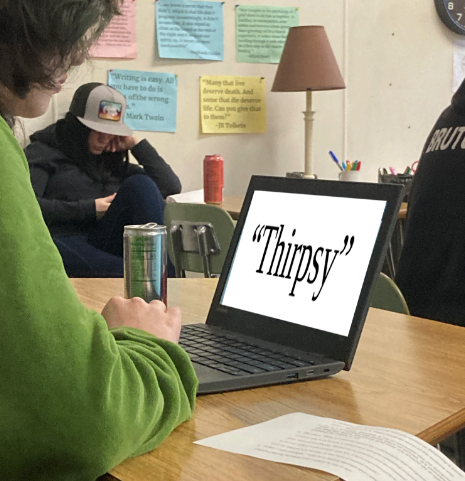







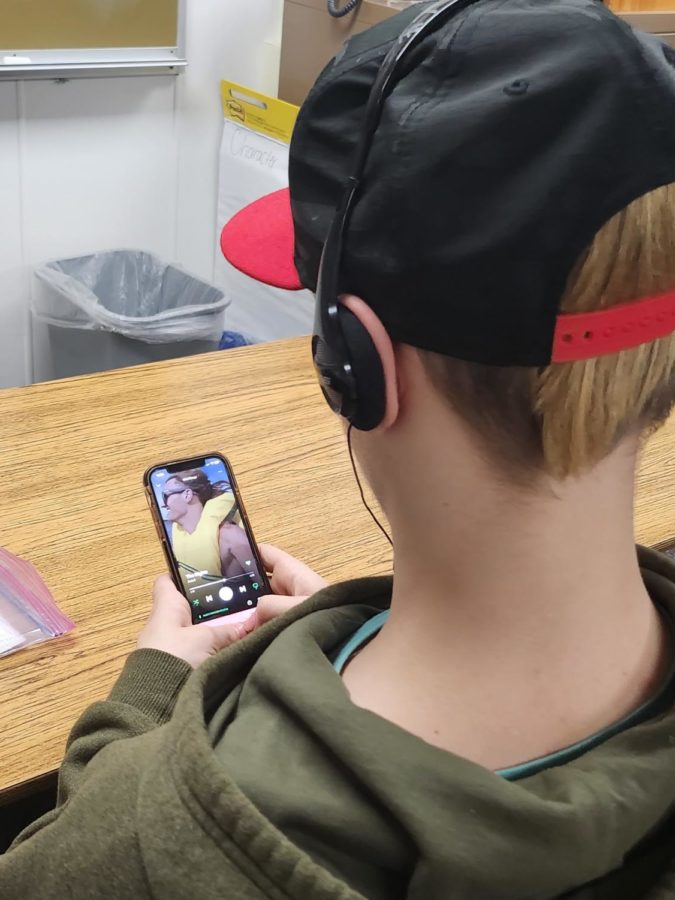







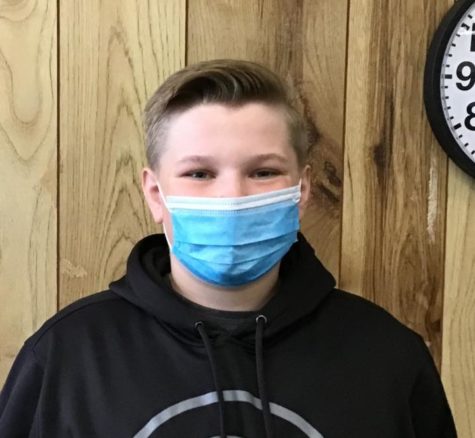




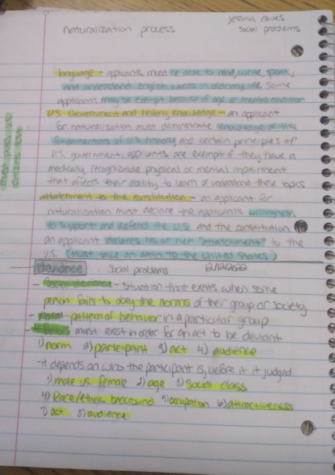

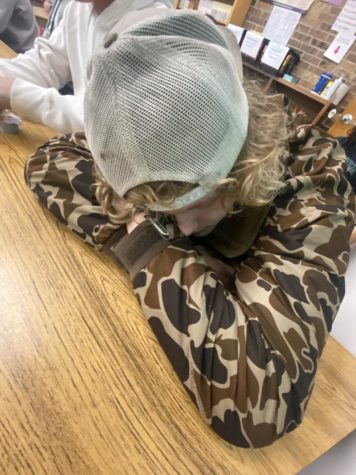




Aidan Hardina • Nov 8, 2021 at 12:27 PM
I think you did a great job with the structure of your article. You also had really strong and reliable evidence to support the claims in the article. Lastly your article was really in the way that it was easy to get pulled into your story to keep on reading.
Jack Biggs • Nov 8, 2021 at 12:23 PM
Max, I really liked the sources you used.
Amber Mrozek • Nov 8, 2021 at 7:54 AM
Max, you have great souces and the statistics that you chose to use are amazing, The way you acknowledge those sources describes how they are important without being too over the top and wordy. The word choice is incredible and the article reads like it was professionally made. I’m sure a lot of people can relate to this article because everyone sleeps it just depends on how long they sleep.
Breanna Kehl-Rousseau • Nov 8, 2021 at 7:51 AM
I have always been told that I need 8 or more hours of sleep. But I never truly understood why sleep was so important and your article helped do that. You gave many examples of why sleep is so important and had many sources to back the information up. You also gave examples of how we can get better sleep and the steps we can take. Now that I know how sleep affects my memory and success in school I might try to fix my sleep schedule.
Mai Vue • Nov 8, 2021 at 7:47 AM
Max, I like the article you wrote; and the way you put dates of students and hours of sleeps. You have a great information and background that shows that how sleep impact students. You also show that sleep is important. You have a great images that show tips to go to sleep and impact of not get sleep. Good job. 😀
Madi • Nov 8, 2021 at 7:43 AM
Max, I thought your article was really well organized and interesting to read. I feel like I learned a lot and you had some really good facts and statistics within your article. Everything was well put and understandable.
Montana Zdroik • Nov 8, 2021 at 7:41 AM
Max, you had amazing research in your article. You clearly found great reliable sources that fit your topic. The article flowed really well. Using advanced vocabulary really added to the tone of the piece and took the article from good to professional. Your use of statistics is incredible and the tail really summarizes the piece. Your choice of topic is also great because it is an issue that students deal with everyday.
Keilly Suarez • Nov 8, 2021 at 7:41 AM
Max, I think the title catches the reader’s eye. All the structure it’s well organized. It has a lot of evidence that helps the reader understand the article more. I also think it’s a really helpful article because teenagers like us aren’t getting the right hours of sleep.
Brody Harlow • Nov 5, 2021 at 12:32 PM
I thought this article was organized very well. It made this very easy to follow and understand.